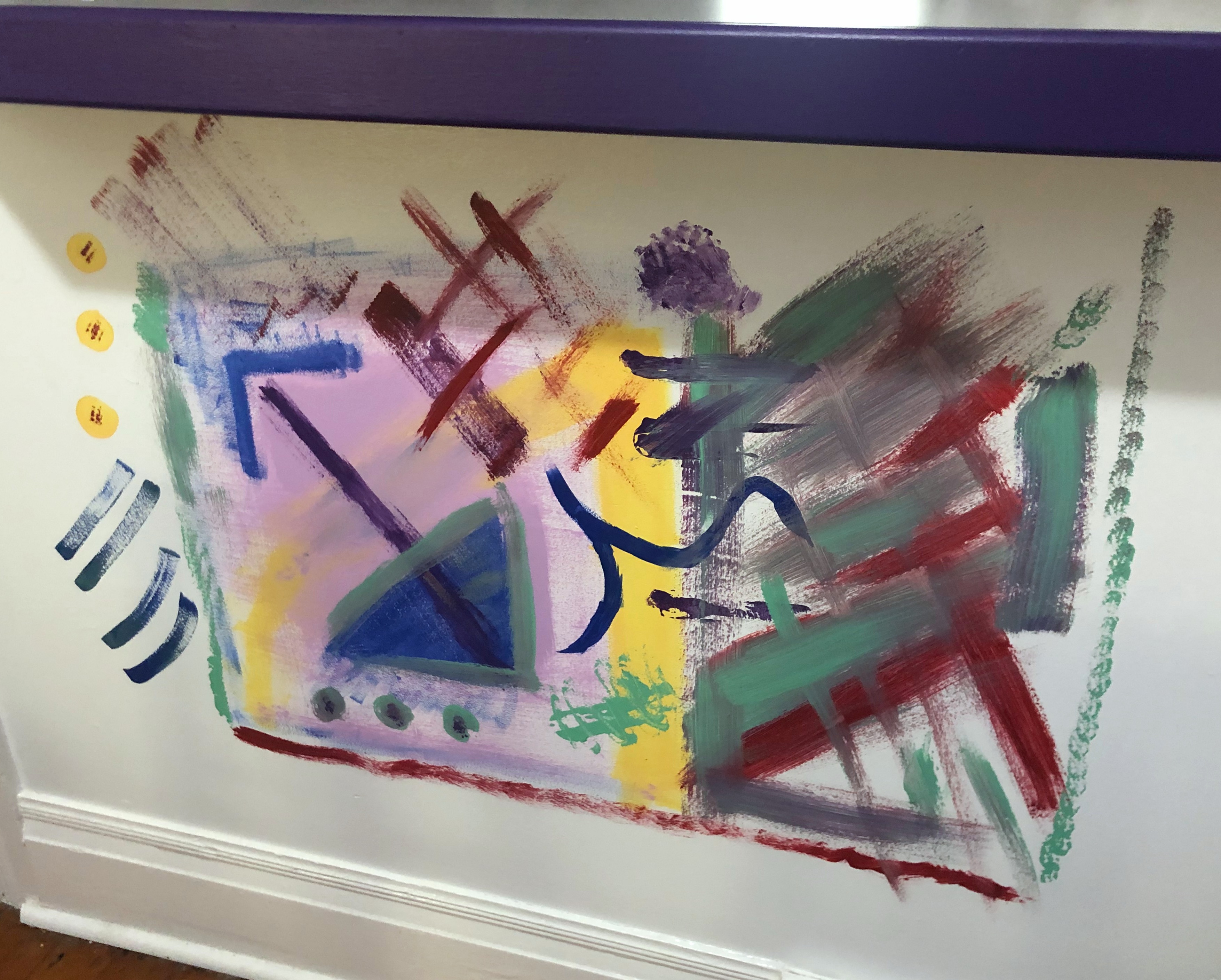Simulated Scheduling
Things I did today:
- Wandered around after midnight on the streets of Cleveland wearing a lighted Cookie Monster hat
- Made an unintentional sex pun while trying to be emphatic
- Yelled at my therapist for an hour
- Wiggled a dog 11,347 times
- Tried to make M believe that how they feel matters (at least to me even if not always to themselves)
- Bought 2 wrist braces and a razor and some cookies
- Tried to not be too hypocritical while asking someone to be deliberate about who they want to parent
Things I did yesterday:
- Have a heavy conversation at 5 AM even though I needed to be up again by 10
- Forget my phone (possibly for the first time since I got one)
- Swear about how shitty transportation is
- Wear a sleep mask and COVID mask and hoodie and earplugs at the same time to try to reduce my sensory stimulation (mostly unsuccessfully)
- Get invited by my physician to speak to medical students about making medical care less shitty
Things I hope to do tomorrow:
- Install lights in places you can’t see them
- Advertise pigs
- Complain about how intuitive eating is a response to sociological trauma, not an independently sound strategy for eating
Things I didn’t do all week:
- Send the following Screed that I had already finished because I imagined somehow that not sending it would help me get out more things I hadn’t yet written
Under the right conditions, when PIC is coming to consciousness, I catch my brain in a tight little anxiety loop. The topic of that anxiety is typically something that has happened recently in my life (not even a future event – just something I’ve focused on in the past day or so) and so the exact scenario varies, but I’m always stuck in a simulation loop. My brain is simulating what I expect will happen as the result of some action I undertake and trying to optimize the outcome with variations. In a movie this might be a montage of all the ways my heist plan might fail before I finally get to one that works.
This itself isn’t distressing – I often do this sort of simulation to learn things. But when PIC comes into control it is clear to them that this process went off the rails. I can feel the result of my jaw being clenched and I can observe a quick cycle time between loops. I’m stuck here because the process that decides I’m done isn’t working. The simulation actually has sufficiently good predictions to achieve my goal – it shows my heist succeeding – but for some reason I’m stuck in this stress loop constantly reevaluating it. For some reason it generates a frustrated and fearful feel even though the outcome is good.
When PIC gains control it’s easy to not only exist the loop to but be happy with whatever solution it contained. It’s easy to change my perspective and see that the thing I’m stuck on doesn’t matter. But that doesn’t happen until PIC gets there, and there’s evidence to suggest I sometimes spend significant time in this state at night.
I suspect this type of thinking process, if not this precise sort of stuck loop, happens to my brain on a more regular basis. It’s sometimes a thing I describe as being available to me as a cognitive skill. But I actually don’t remember doing it at all, except in this sort of edge-of-consciousness situation. Which is the same sort of well-defined nothing I feel about other switching-related amnesia. It’s different than memory lost to trauma or to time – it feels very familiar and sometimes seeps into my language, but I also couldn’t name any properties of it outside this one, very specific transitional context.
I can somewhat reliably trigger this by letting myself hyper-focus (like forget to blink levels of focus) on something that includes survival and simulation aspects, for several hours before sleeping. Rimworld is one way to do this, or Oxygen Not Included – something that lets me be in a constant state of waiting for the next life threatening thing to pass and planning ahead to make sure things get better over time. It’s part of why I like games like that, and why I can stare at them for so long. During game play I don’t get stuck in these little loops – I only simulate a tiny before choosing something and moving on. But when I’m asleep I lose the regulation that lets me accept the outcomes and move on.
This simulation skill is also something I use in planning heists. When I have I identified a feeling I want someone to have and want to try different ways to get them to it. I can play act the scenario repeatedly until I find some cluster of sufficiently good outcomes to advance the plot. I can get stuck in that process, but mostly in bigger cycles where I need a new approach, not in the context of a single conversation or event.
But even in that scenario my perception of this is after the fact – I don’t choose to run a simulation, it’s something that I get the results of when it exits. It’s something I want to have happen and presumably I do something to kick it off. Drugs can help me get it going. But it’s not a thing I do as PIC, and it is a thing I fear I might loose if someone took away my obsessive thinking.
I’ve know all this, in bits and pieces, but I have a new perspective with a dissociative framework. It’s easy to imagine this as a fragile skill, but I think it’s closer to a default in my brain than an inaccessible fragment. I like the idea that I can do directed work with the emotion-based thinking this process uses. But like other bits of myself I’d like it more if I knew how to find it and who is in charge of it.
ZiB
—
Sent from a phone.



